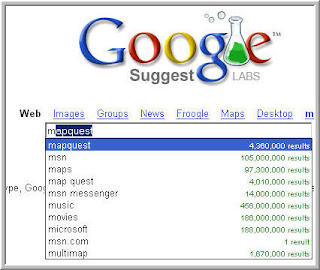After researching for some of the best search tools to embed into a blog, I finalised the list of search tools down to Swicki and Google mainly because both can be specialised towards blogs and function in a way that could optimise a user’s searching experience. The next section will talk about each of the search tools and their advantages & disadvantages.


Eurekster's Swicki – Its Drawcard
- The Swicki platform harnesses the knowledge & behaviour of online communities to increase search relevance & value for site visitors i.e. social search engines (Leaman, 2009).
- Swicki allows for a deep customisation of the design, the search behaviour of the search tool & folksonomic indicators or tags (Leaman, 2009).

Google's Custom Search - Its Drawcard
- According to Google, custom search “…enables you to create a search engine for your website, your blog, or a collection of websites. You can fine-tune the ranking, customize the look and feel of the search results, and invite your friends or trusted users to help you build your custom search engine. You can even make money from your search engine by using your Google AdSense account” (Google, 2011).
Similarities Between Google & Swicki
- Both Google and Swicki allow users to produce customised search engines.
- The final result, where both search tool are able to sort the results by topic are similar.
- Both support keyword searching.
Differences Between Google & Swicki
- Swicki lets you create a tag cloud of search terms.
- Swicki’s search results are more topic focused i.e. the search zone is much more narrower than Google's.
- Furthermore, because of Swicki’s narrower search zone, results come ‘recall-based’ where all information is returned regarding a certain keyword whereas in Google, results are returned based on relevance or ‘precision-based’.
- Google contains a nifty feature of word suggestions in a form of a word wheel (see image 1 below).
The Verdict
The question of which search tool to use really comes down to user preference. My preferences however are based on this blog which I believe is assorted by topic i.e. the questions each week I have to answer for my university course are topic based. Therefore Swicki, which allows me to customise searches by topic and has a stronger emphases on topic categorisation, would be my choice.
Reference List:
1. Leaman, R. (2009, February 10). Top 6 Popular Site Search Widgets [Web Log Post]. Retrieved from http://www.wildapricot.com/blogs/newsblog/archive/2009/02/10/top-6-popular-site-search-widgets.aspx.
For further reading on either Swicki, Google’s custom search or search tools check out the websites or blogs below:
1. Leaman, R. (2009, February 10). Top 6 Popular Site Search Widgets [Web Log Post]. Retrieved from http://www.wildapricot.com/blogs/newsblog/archive/2009/02/10/top-6-popular-site-search-widgets.aspx.
2. Google. (2011). Google Custom Search. Retrieved August 16th, 2011 from http://code.google.com/intl/en/apis/customsearch/docs/start.html.
For further reading on either Swicki, Google’s custom search or search tools check out the websites or blogs below:
Znitchit's Utimate Search 2.0 Showdown: Want to compare the major search tools? This blog shows a chart & a simple video, displaying where some of the major search tools compare against each other.
Blakeman's Search Tool Comparison: This another search tool comparison but in an easy to read, table form.
Blakeman's Search Tool Comparison: This another search tool comparison but in an easy to read, table form.
Google's Custom Search vs. Wordpress's Search Tool: Once again, another search tool comparison but between Google's Custom Search & Wordpress's version...just in case you want to use Wordpress to create your blogs.

